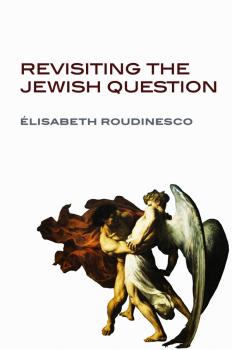Elisabeth Roudinesco
Список книг автора Elisabeth RoudinescoRevisiting the Jewish Question
What does it mean to be Jewish? What is an anti-Semite? Why does the enigmatic identity of the men who founded the first monotheistic religion arouse such passions? We need to return to the Jewish question. We need, first, to distinguish between the anti-Judaism of medieval times, which persecuted the Jews, and the anti-Judaism of the Enlightenment, which emancipated them while being critical of their religion. It is a mistake to confuse the two and see everyone from Voltaire to Hitler as anti-Semitic in the same way. Then we need to focus on the development of anti-Semitism in Europe, especially Vienna and Paris, where the Zionist idea was born. Finally, we need to investigate the reception of Zionism both in the Arab countries and within the Diaspora. Re-examining the Jewish question in the light of these distinctions and investigations, Roudinesco shows that there is a permanent tension between the figures of the ‘universal Jew’ and the ‘territorial Jew’. Freud and Jung split partly over this issue, which gained added intensity after the creation of the State of Israel in 1948 and the Eichmann trial in 1961. Finally, Roudinesco turns to the Holocaust deniers, who started to suggest that the Jews had invented the genocide that befell their people, and to the increasing number of intellectual and literary figures who have been accused of anti-Semitism. This thorough re-examination of the Jewish question will be of interest to students and scholars of modern history and contemporary thought and to a wide readership interested in anti-Semitism and the history of the Jews.
Our Dark Side. A History of Perversion
Where does perversion begin? Who is perverse? Ever since the word first appeared in the Middle Ages, anyone who delights in evil and in the destruction of the self or others has been described as 'perverse'. But while the experience of perversion is universal, every era has seen it and dealt with it in its own way. The history of perversion in the West is told here through a study of great emblematic figures of the perverse – Gilles de Rais, the mystical saints and the flagellants in the middle ages, the Marquis de Sade in the eighteenth century, the masturbating child, the male homosexual and the hysterical woman nineteenth century, Nazism in the twentieth century, and the complementary figures of the paedophile and the terrorist in the twenty-first. The perverse are rarely talked about and when they are it is usually only to be condemned. They are commonly viewed as monstrous and cruel, as something alien to the very nature of being human. And yet, perversion can also attest to creativity and self-transcendence, to the refusal of individuals to submit to the rules and prohibitions that govern human life. Perversion fascinates us precisely because it can be both abject and sublime. Whether they are sublime because they turn to art or mysticism, or abject because they surrender to their murderous impulses, the perverse are part of us because they exhibit something that we always conceal: our own negativity and our dark side.

